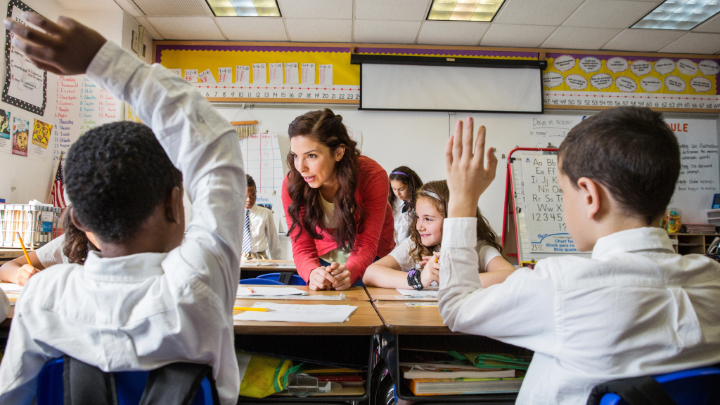How much progress do primary school children make in languages?
Since September 2014, all primary school children in England learn a foreign language over the last four years of primary school (i.e. Years 3-6, ages 7-11). The National Curriculum lays out the expectation that they should make “substantial progress in one language” (Department for Education, 2013). However, there is currently no clear guidance for schools on what this substantial progress looks like. This is where our research project comes in, aiming to answer the question of ‘How much progress can we expect primary school children to make in languages by the time they finish primary education?’
| According to the Language Trends survey (Tinsley & Doležal, 2018), 51% of primary teachers believe their students have reached the expected level of competence in languages by the time they leave primary school. But only 12% of secondary teachers agree. |
What we’re doing
We’re conducting a longitudinal study over four years to explore how young learners in English primary schools develop their language skills in French, German and Spanish. This includes:
- Measuring learners’ progress in languages. We use a range of activities to do this including vocabulary, phonics and grammar tasks, reading and listening comprehension exercises and speaking and writing activities.
- Finding out about learners’ experiences of learning a language in primary school and whether that changes over time. We do this through focus groups and attitude surveys.
- Exploring individual factors (e.g. working memory) that might influence language learning. We use quiz-type activities to measure these.
- Exploring the school factors that might influence language learning, such as policies for language learning and how strongly language learning is prioritised in the curriculum. We do this through interviews and focus groups with teachers and other school staff, for example.
- Exploring home factors that might influence language learning through a parent questionnaire.

An example of one of our listening activities.
We’ve partnered with 17 schools across England who offer ‘optimal but realistic’ language provision in French, German or Spanish. This means they have 45-60 minutes of language teaching a week and follow a defined scheme of work. We have been visiting them twice a year since January 2023.
Why it matters
- Realistic benchmarks: Our research will help to identify achievable learning outcomes for primary languages. This will help create clearer guidance as to what we should aim for when teaching primary languages.
- Supporting teaching: By painting a detailed picture of what factors influence language learning in primary schools, the research will be able to enhance curriculum design and teaching practices to support teachers in helping their learners progress in the most effective ways.
- Smoothing the transition to secondary school: In gaining a better understanding of how languages develop during primary school, and by setting realistic benchmarks for language learning at this level, it will be possible to reduce the mismatch that currently exists between what level primary and secondary schools expect students to be at by the end of primary education.
Where we are now
We have been gathering data since January 2023 and are starting to publish initial findings, which we will also share in this blog. Some questions we will be looking at in the next few blogs include:
- What happens to language learner motivation during the course of primary school?
- What do young learners think about learning a language?
- How can we design effective language learning materials for young learners?
Find out more
In the meantime, if you’d like to find out more about the background and context of the study, we recommend reading the 2019 white paper published by the Research in Primary Languages Network.
You can also explore our Progression in Primary Languages website.
If you’d like to get in touch with the research team, please email us at PiPL@reading.ac.uk.
References
Department for Education. (2013). Languages programmes of study: key stage 2. National curriculum in England. Crown Copyright. Available at: https://assets.publishing.service.gov.uk/government/uploads/system/uploads/attachment_data/file/239042/PRIMARY_national_curriculum_-_Languages.pdf.
Tinsley, T., & Doležal, N. (2018). Language Trends 2018. Language teaching in primary and secondary schools in England. Survey report. London: British Council. Available at: https://www.britishcouncil.org/sites/default/files/language_trends_2018_report.pdf.

